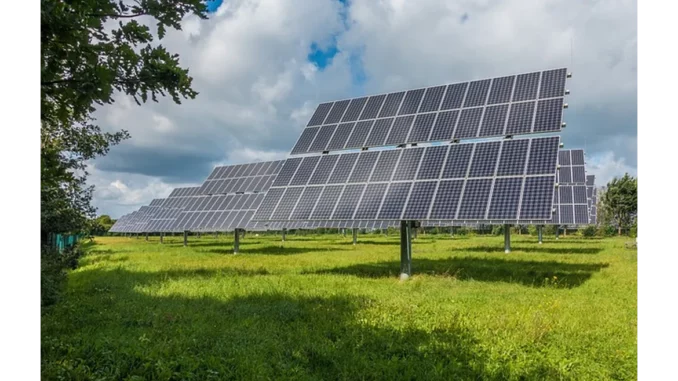
Nestled in the tranquil countryside of Norfolk, England, a significant debate is brewing that juxtaposes the promise of renewable energy against the imperatives of agricultural preservation and local visual aesthetics. Two expansive solar farm projects are proposed to transform this serene locale into a hub for solar energy in the UK. While the benefits in terms of clean energy and reduced carbon emissions are substantial, the opposition from local communities is equally robust. This article explores the multifaceted dimensions of this contentious issue, considering arguments from various stakeholders and the broader implications for energy policy and rural communities.
Discover how Focus360 Energy aids sustainable development with Sustainability Statements.
The first proposal, High Grove Solar Farm, is spearheaded by the German energy firm RWE. It aims to cover 4,000 acres of farmland across five sites in Norfolk, making it 15 times larger than any existing solar farm in the UK. This project is expected to generate 720MW of power, sufficient to supply energy to 363,000 homes and save 25 million tonnes of CO2 emissions over its 25-year lifespan. The second proposal, East Pye Solar Farm, is led by the UK-based Island Green Power and spans 2,700 acres, affecting eight villages. Both projects are classified as Nationally Significant Infrastructure Projects, meaning local authorities lack the power to block them, and the final decision rests with the Energy Secretary.
Local opposition to these projects is formidable. Kay Mason Billig, the Conservative leader of Norfolk County Council, has described the area as being “under attack” from a “creeping abuse” of the countryside. She contends that agricultural land should be prioritised for food production rather than energy generation. Shadow Energy Security and Net Zero Minister Joy Morrissey has echoed these concerns, criticising the government for potentially jeopardising national food security and disregarding rural communities.
Residents in and around the towns of Swaffham and Dereham, as well as villages like Necton and Ashill, have voiced their dismay. Jim Neale, a retired print worker, highlighted the necessity of using agricultural land for growing vegetables instead of installing solar panels. Paul Holbrook, a retired teacher with solar panels on his own home, described the scale of the project as “outrageous.” The sentiment among locals is that while renewable energy is crucial, it should not come at the expense of fertile farmland.
The controversy in Norfolk mirrors a broader national debate about the future of energy and land use in the UK. On one side, the government has outlined ambitious targets to achieve Net Zero by 2050, and solar power is a key component of this strategy. Energy Secretary Ed Miliband has asserted that solar power is essential for meeting these goals. Conversely, critics argue that extensive solar farms should not encroach upon valuable agricultural land. They advocate for utilising alternative locations, such as rooftops and brownfield sites, to minimise the impact on food production and rural landscapes. David Hook, chairman of Hempnall Parish Council, warned that the sheer size of these projects would “completely destroy the area.”
From the perspective of the companies involved, balancing energy needs with community concerns is a priority. RWE and Island Green Power have initiated consultations to gather feedback from local communities and refine their project designs. Mike Greslow, project manager for High Grove, emphasised that the location was chosen for its optimal conditions for solar energy production and proximity to the existing high-voltage transmission network. He also mentioned plans to enhance local green spaces and deliver benefits for biodiversity. An Island Green spokesman underscored the company’s commitment to achieving a biodiversity net gain across the site and exploring ecological enhancements based on community feedback.
The proposed solar farms in Norfolk signify a substantial advance towards the UK’s renewable energy goals, yet they also underscore the intricate trade-offs inherent in large-scale projects. Balancing the need for clean energy with the preservation of agricultural land and rural aesthetics is a complex challenge that necessitates careful deliberation and community engagement. As the debate continues, it is essential for policymakers, companies, and local communities to collaborate in finding solutions that address both energy requirements and local concerns. Whether through alternative locations, enhanced community benefits, or improved project designs, a balanced approach is crucial for navigating this contentious issue.


Be the first to comment